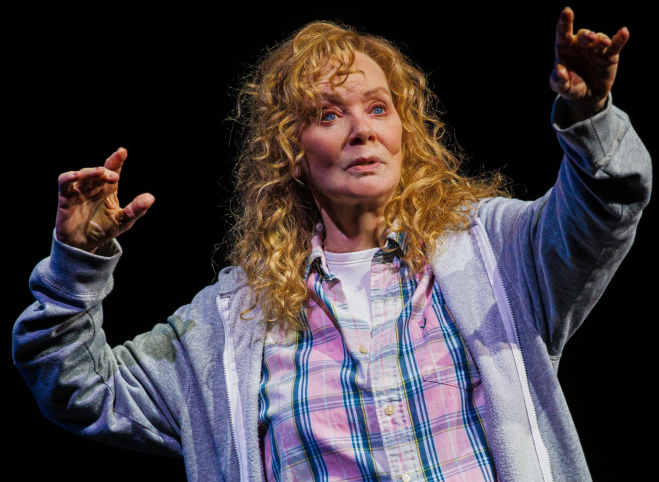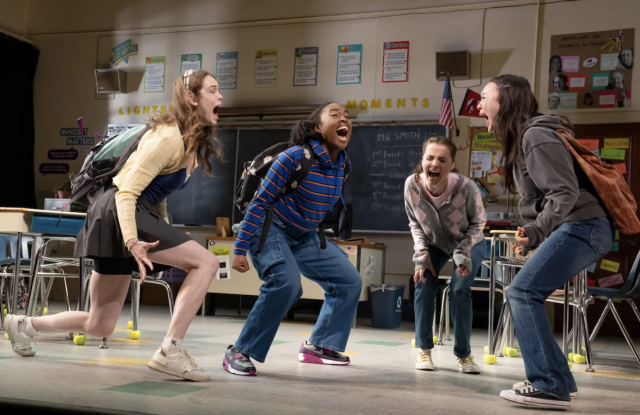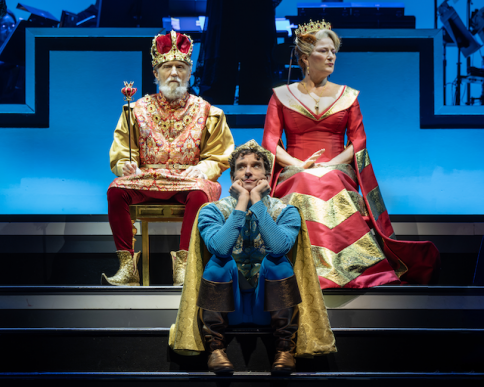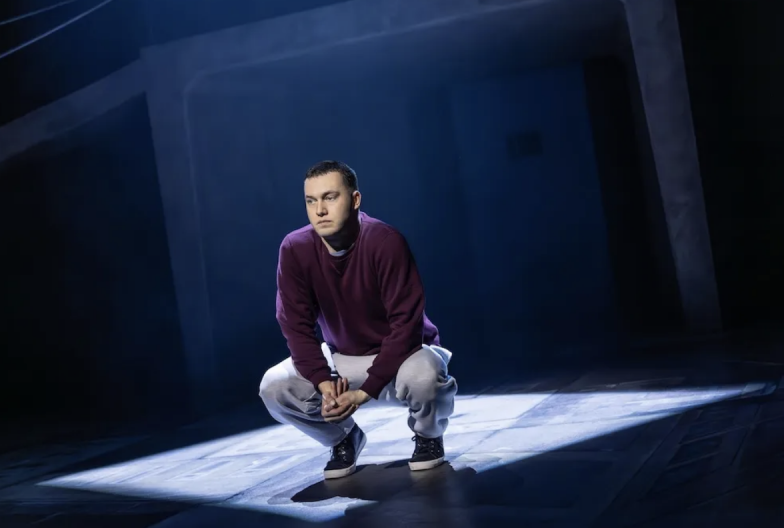
Will Harrison (Photo: Matthew Murphy)
Punch
By Carol Rocamora
Punch, James Graham’s powerful new drama, is stunning Broadway audiences with an impact that lives up to its title. In short, it’s a knock-out.
Known for his award-winning plays on an impressive variety of topics – This House (2012) on the British parliamentary history, Ink (2017) on the rise of Rupert Murdoch’s empire, and Dear England (2023) on England’s men’s football team – this superb British playwright is now bringing to life a true story about crime, punishment, and redemption.
Set in a tough working–class neighborhood of Nottingham, a city in England’s East Midlands, the nineteen-year-old Jacob (a sensational Will Harrison) is primed for a night of action with his best mate Raf (Cody Kostro) and friends. Raised by a struggling single mother (the suffering Lucy Taylor), Jacob is unschooled, unemployed, uncontrollable, and diagnosed as autistic.
Loaded with cocaine, looking for a fight (“I can’t wait!”, he says), Jacob finds one that night at the end of a pub crawl. Only it’s not actually a fight – it’s an unprovoked assault by the pumped-up Jacob on another young man he doesn’t even know, who is out for a drink with his father. Jacob punches him in the face – just once.

Lucy Taylor, Piter Marek, Jacob Orr, Will Harrison, Cody Kostro, Kim Fischer, Camila Canó-Flaviá (Photo: Matthew Murphy)
The young man falls to the ground, hits his head on the concrete, and is carted away unconscious to the hospital. After nine days and a failed operation, his traumatized parents Joan (a superb Victoria Clark) and David (a conflicted Sam Robards) give permission for James, their son, to be taken off life support. Meanwhile, Jacob has fled the scene in terror. After questioning Raf and other friends in Jacob’s gang, the police arrest Jacob as the assailant. To James’s parents dismay, he’s convicted for manslaughter instead of murder (the fatal head injury was due to the fall on the concrete) and convicted to a mere fifteen months in prison.
But that’s only the beginning of this true story (documented by the real Jacob Dunne in a book entitled Right from Wrong). After Jacob is released from prison, James’s suffering parents, after failing to relieve their anger, decide on a new approach. They want to meet Jacob through a newly created program called “restorative justice.” Their reason: to understand why Jacob punched their son.
Facilitated by a social worker (Camila Cano-Flavia) and parole officer (Lucy Taylor again), the meeting occurs – possibly one of the most agonizing, moving scenes you’ll ever see onstage. But instead of attacking him, James’ mother asks Jacob: “What are you going to do with your life?” This unexpected question shocks Jacob out of his self-hatred and despair, propelling him on a journey of self-rehabilitation (details are yours to discover). As Jacob explains to us at the play’s conclusion: “The people I harmed most in the world are the ones that helped me the most.”
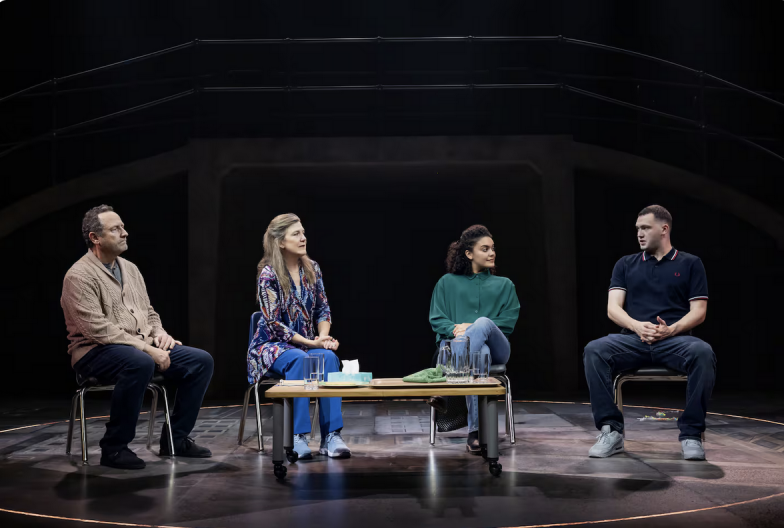
Sam Robards, Vicki Clark, Camilla Canó-Flaviá, Will Harrison (Photo: Matthew Murphy)
It’s one thing to find such a powerful story to tell – and yet another to tell it as brilliantly, imaginatively, and effectively as James Graham and his collaborators have done. Director Adam Penford has assembled a remarkable cast, some of whom play multiple roles. He has directed them as an ensemble (with the aid of Leanne Pinder) so that their movement is not realistic, but rather choreographed. Anna Fleischle’s stunning set features a circular ramp on which the ever-moving ensemble flows. Upstage, the ramp is surrounded by images of the “estates” (building tenements) where these wayward youth dwell. It’s as if these flickering lights through their windows (designed by Robbie Butler) are flashes of hope, if only they were reachable.
Punch is more than one young man’s inspiring story from crime to redemption. It’s the story of the challenges of working–class youth and toxic masculinity. It’s the story of families that are broken and families that struggle to find a way to heal. But Punch pulls no punches – the ending is not entirely a happy one. Rather, it’s realistic. Jacob may have a new life (and a new son), but Joan and David have lost a son forever. Can they forgive Jacob? Is forgiveness possible – in them, or indeed in any of us? That’s the question that this profound, uplifting play poses.
At Manhattan Theatre Club’s Samuel J. Friedman Theatre
261 West 47th Street
Through November 20, 2025

